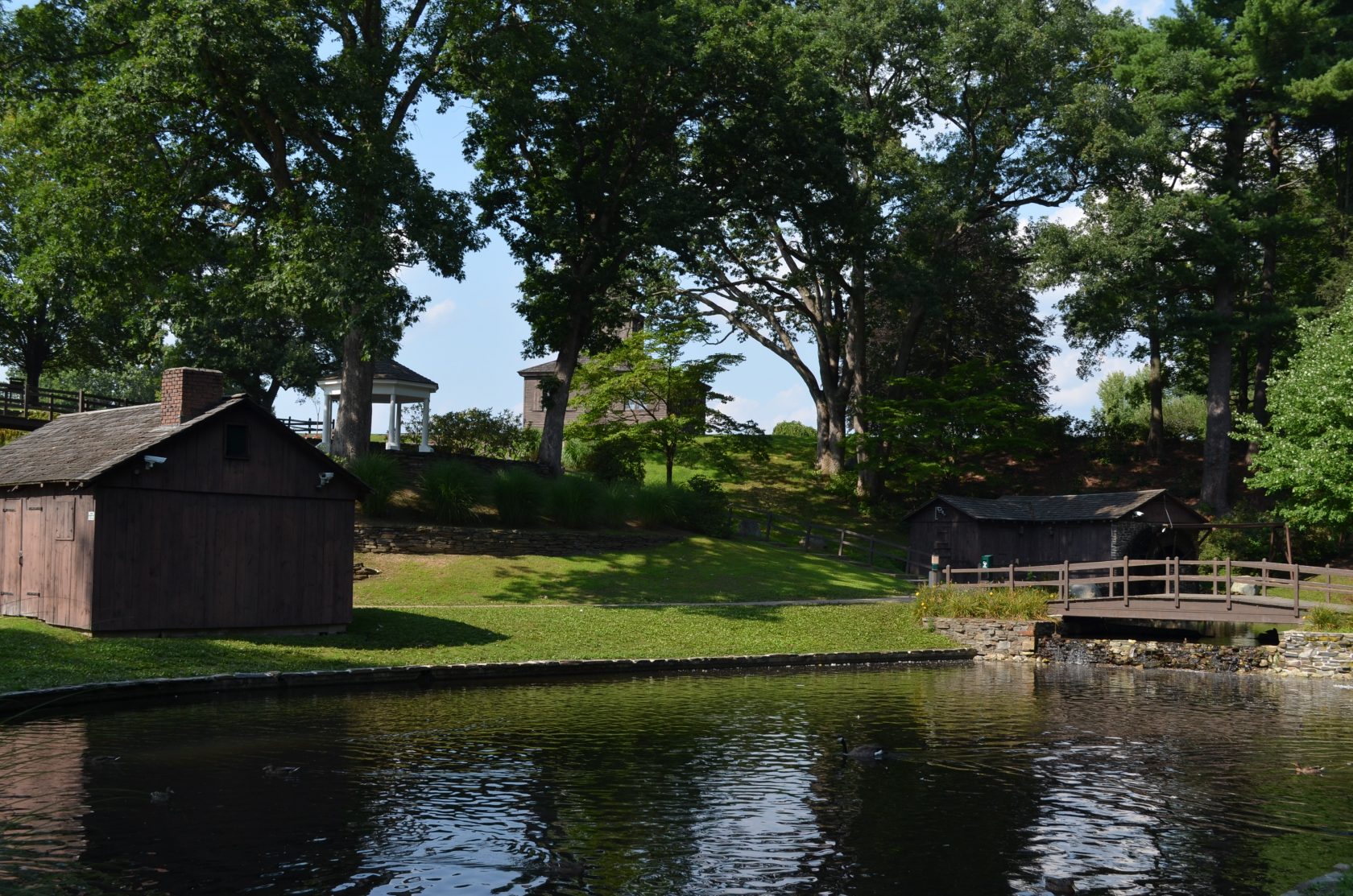WESTFIELD – The Community Preservation Commission is struggling with whether to fund an $85,000 request from Stanley Park to refurbish the Grist Mill and Meeting House in the Colonial Village with Community Preservation Act funds.

The Colonial Village at Stanley Park. (WNG File Photo)
The first hurdle was whether it could be considered of historical significance, as its buildings were built in the 1960s and are reproductions of Colonial buildings. At Thursday’s quarterly meeting, CPC member Cynthia Gaylord of the Historical Commission said that City Planner Jay Vinskey, who staffs the CPC, had pointed out to her that it could be funded under projects that are culturally significant.
Gaylord said that Stanley Park is restoring the Colonial Village, which in the past has been open to school children for historical programs, and has plans to upgrade it. She said its cultural significance qualifies it for CPA funding.
At Thursday’s meeting, the second hurdle, that of the deed restriction, was discussed at length between CPC Committee members, Stanley Park Director Bob McKean and Jeffrey Glaze, president of the Board of Directors. Also present at the meeting were Board members Barbara Braem-Jensen and Angela Derouin.
Glaze said the Board of Directors’ position is that Stanley Park is a public park open to the public but privately owned and self-funded. He said the requested funds were to restore the paddle wheel on the Grist Mill and re-open it to the public, and to refurbish the Meeting House which has various uses, including weddings. He said they could not agree to a permanent easement.
Vinskey said it’s always been the policy of the CPC that money to private entities comes with a deed restriction. He said this case is a little unusual, and he had spoken with the Law Department about it.
“The park is already established as a permanent park. We feel it’s already designated,” Glaze said, adding that the grant would help them “fix up what’s there. Essentially, the renovation fund is to keep this going for the city.”
Glaze also said the deed restriction requires right of way access, but the village is land-locked, and the park buildings are closed in the winter. “Would the city have to have access,” Glaze asked, adding that if it were on the edge of the property, it could be arranged.
Glaze added that Stanley Park has two judges and one attorney on the Board of Directors.
“Typically with a historical restriction, there is no requirement for public access,” Vinskey said.
The Board did give an amended version back to the CPC, saying they would agree to a 20-year restriction which would not allow for removal or changes to the buildings for that long. He also said if there were precedence on a 30-year restriction, there might be some leeway on the Board’s position.
“The Board just felt they couldn’t give a permanent restriction,” Glaze said.
“Certainly, I’m no attorney, but this is quite contrary (to our practice),” said CPC Mayoral appointee William Porter. “This is more of a protection that the building would be unchanged. I would be a little reluctant to make a decision.”
CPC vice-chair Thomas E. Sharp said the Conservation Commission has similar rules, requiring a 30-year permit.
Vinskey said in order in order for the deed restriction to be considered permanent, it must go through the state office. He said the amended document could go through the Historical Commission and City Hall to be signed, making it a local-only restriction.
“Rock (W. Rockne) Palmer is on our Board of Directors, and did the lead on this. If they come back with the revision on the proposal, he’ll look at it,” Glaze said.
“30 years versus forever,” Sharp said.
“It’s always been the policy to be state-approved. If the CPC is not comfortable with that, then there’s no point in going forward,” Vinskey said.
“30 years for me sounds like a wonderful deal for $85, 000,” said Gaylord.
“I have mixed feelings. As a representative of the taxpayers, it’s my duty to assure the grants. I’m not feeling altogether comfortable,” said Porter, adding, “What’s to prevent Stanley Park from going from private-public to private-private.”
“All of us (would give you that assurance). We’re here because there were funds available, we thought,” Glaze said. McKean said if it became an issue, the park would pay the city back the funds.
“It’s in the proposal; if the Park became private, we’d pay it back,” Glaze confirmed.
“I can assure you the Board of Directors is passionate about keeping Stanley Park the way it is in perpetuity. Part of the reason we are sorting through this is we have in mind the wishes of Frank Stanley Beveridge,” Derouin added.
After commending McKean and the Board on the work they do at Stanley Park, all agreeing that it is a “jewel” of Westfield, the committee moved to table the matter to the next quarterly meeting in April, while Vinskey gets a written opinion from the Law Department, at Porter’s request, on Stanley Park’s amended document for a local-only restriction.








